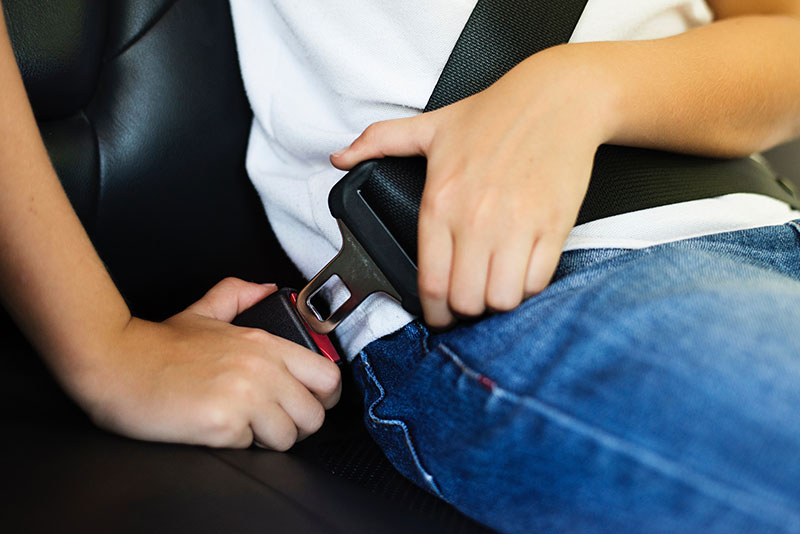Great strides have been made by car manufacturers to improve driver safety as roadway vehicles have become the primary mode of transportation. One of the greatest additions to driver safety has been the seat belt.
According to the National Highway Traffic Safety Administration, seat belts save more than 15,000 lives each year, but an additional 2,500 lives could be avoided if everyone was buckled up. In an attempt to keep as many people safe, most states have implemented seat belt laws, but not every state’s laws are the same.
In this blog, we will be discussing the ins-and-outs of Tennessee's seat belt laws.
Seatbelt Statistics
Let's put everything into perspective by taking a look at more information addressing the life-saving benefits of wearing a seatbelt.
-
Not wearing a seatbelt could result in being ejected from your seat and car if you were involved in a crash.
-
Airbags can cause more damage and should not be your only source of protection.
-
Buckling up while in the front seat lowers your fatality risk by 45% and moderate injuries by 50%.
-
If you buckle up in a truck you reduce your fatality risk by 60% and minor injuries by 65%.
-
Wearing your seatbelt is THE safest measure you can take while riding or operating a vehicle.
Who is required to wear a seat belt?
In Tennessee, drivers and all passengers must wear their seat belt any time the vehicle is in forward motion. This includes passengers riding in the backseat of your car. Even though it may be more difficult for a backseat passenger to be thrown through the windshield in a crash, they can still be thrown from the vehicle if they are not properly restrained.
State law requires the proper use of whatever seat belt inside your vehicle. This means if your car has a lap and shoulder belt, you are required to have both properly in place.
Learn how Tennessee students are pulling together to encourage safer driving.
Guidelines to Buckle Up Safely
-
The lap and shoulder belt must be secure across the hip and rib cage.
-
The shoulder belt should sit in the middle of your chest and not touch your neck.
-
Your lap belt should not sit on your stomach but on your hips.
-
The shoulder belt should never be put under your arm or behind your back.
How are seat belt laws enforced?
Many states, including Tennessee, have been cracking down on seat belt laws. You’ve probably heard the phrase “Click It or Ticket”; this is a campaign where the Tennessee Highway Safety Office and local law officials increase seat belt law enforcement, typically in the summer months.
If you are pulled over for not wearing your seatbelt, you can not only be fined for you but also any unlicensed passenger under the age of 18 that is also not wearing one. Thankfully, fines for not wearing it in Tennessee are relatively low. For a first time offense, you will only be fined $25. However, this does not mean you should get in the habit of not wearing your seatbelt. Not using your seat belt could be far more costly than a $25 fine - 48% of passengers in roadway fatalities in 2016 were not wearing their seat belt.
What if I don’t have seat belts or they don’t fit properly?
If you have a vehicle that was purchased before manufacturers were required to include seat belts, or your car was obtained in a country where seat belts are not required, it is your responsibility to get belts installed that conform to the current federal motor vehicle standards. If you do not have enough belts for the number of people in your family, you may be able to get another belt installed if you have room in your vehicle.
If the seat belts in your vehicle are too small to fit comfortably, belt extenders are available for most vehicles. If you need an extender, take your car to a dealer to get one installed.



